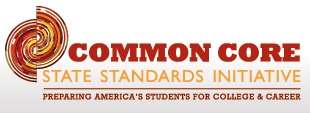Common Core Leaves Out Consideration for the Kids


Common Core education standards have become something of a target for education activists displeased with top-down homogenized education. That's especially true of political conservatives who see the hand of the federal government, and the Obama administration, in the standards. In fact, while the president has cheerleaded for Common Core, the standards were developed by the National Governors Association and the Council of Chief State School Officers, and their adoption is voluntary at the state level. That doesn't change the homogenizing nature of the standards, though. And my my family's experience suggests that an important factor has been left out of the development of the standards: the poor kids who are expected to march in unison to meet Common Core's competition-driven goals.
According to Common Core's mission statement:
The Common Core State Standards provide a consistent, clear understanding of what students are expected to learn, so teachers and parents know what they need to do to help them.
The premise here seems to be that we're just not asking enough of the kiddies. That would be a defensible premise if public school students from sea to shining sea were yawning and acing test after test. Time to step it up!
But they're not. A Cato Institute analysis of the latest National Assessment of Educational Progress scores found:
There have been some slight improvements in the scores of younger children, but they don't last. By the time students are preparing to enter higher education or the workforce, they are no better prepared academically than they were two generations ago–despite the fact that we have spent three times as much on their K-12 education as we did educating the class of 1970.
Whatever you may think of current standards, kids aren't exactly excelling at pre-Common Core levels, despite increased resources. To be blunt, if the kids aren't learning at what has been deemed unacceptably low standards, we should probably take a close look at how they're being taught and who is teaching them. Simply raising the bar is a recipe for massive failure.
The promo material for Common Core also rubs me the wrong way. A video touts the competitive nature of education and how kids need to learn to the same level so they can go head-to-head with kids across the country and around the world. Gotta beat those whizzes in Shanghai! But kids aren't all members of Team America and they're not factory widgets—they're individuals who learn in different ways and at different paces.
My wife and I picked our son's charter school because it has a culture and curriculum that suits him. The lesson plan was developed by Hillsdale College, the school is small enough that the teachers know the kids, and he's been learning and happy in the environment. We don't hold his school out as ideal for all kids because we assume different approaches work for different children.
But this year, Common Core kicked in, and so did a lot of tears during homework time. Tony's teacher explained to us that the kids are having some rough going, especially with math, because they didn't just jump up to third-grade lessons and expectations as usual, but are now expected to meet Common Core standards. We may have picked a charter, but it's publicly funded, and so the new standards apply.
We're OK with challenging standards. That's one reason we picked the charter over the holding pens run by the school district. But a sudden jump in expectations without preparation to ease the kids (and teachers) to a higher level doesn't improve my opinion of the people setting the new targets. Not surprisingly, Tony started uttering the dreaded "I'm just not good at…" phrase that signals frustration and the potential for giving up.
So we sat down to help him with the concepts. And then we started Googling those concepts so we could understand them to explain them to our son. Who, once again, is in third grade. And then we looked up the Common Core standards. States are free to make adjustments to the standards as needed, although the Arizona implementation (PDF) doesn't look much different than the national model.
"Pre-algebra?" my wife asked.
"I don't remember doing that until fourth or fifth grade," I answered. And that was in a well-regarded suburban school in New York. I didn't do well in math, to be honest, and I'm convinced that it was because I was pushed too hard, before I was ready. My son is being asked to do the same at least a year earlier.
There's a heavy emphasis on abstract thinking and concepts. From the Arizona math standards for third grade:
Mathematical Practices (MP)
1. Make sense of problems and persevere in solving them.
2. Reason abstractly and quantitatively.
3. Construct viable arguments and critique the reasoning of others.
4. Model with mathematics.
5. Use appropriate tools strategically.
6. Attend to precision.
7. Look for and make use of structure.
8. Look for and express regularity in repeated reasoning.
My wife, a pediatrician who deals with children and tracks their physical and mental growth every single day, said, "I'm not sure third-graders are developmentally ready for this. Their brains may not be able to handle it yet."
That's not to say that no third graders can do this. Kids vary widely in their abilities and the pace at which they grow. And any school grade covers an age range spanning a year. But it's quite likely that many kids, expectation-wise, are being pushed to or past the limits of their abilities by educational institutions that have already widely failed to teach them to lower standards.
Kids are capable of doing a lot. But the Common Core standards are premised on the idea that dissatisfaction with American public education is a result of the children failing the system. That's not the case. In reality, the system has failed the children.
As I mentioned, Common Core is controversial. Some states are opting out. Arizona's superintendent of public instruction, John Huppenthal, plans to address that controversy by changing the name to "Arizona College and Career Ready Standards," but otherwise says the new standards are here to stay.
With Common Core squeezing yet more variety out of the education options available to us, for reasons that strike me as faulty and using means that seem flawed and damaging, homeschooling looks ever-more attractive.
